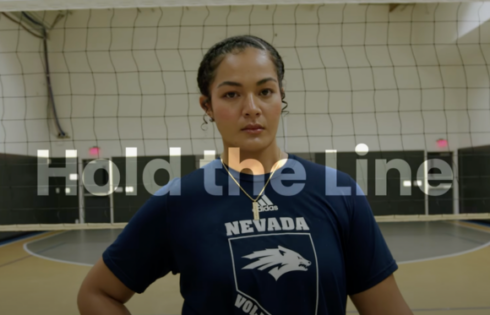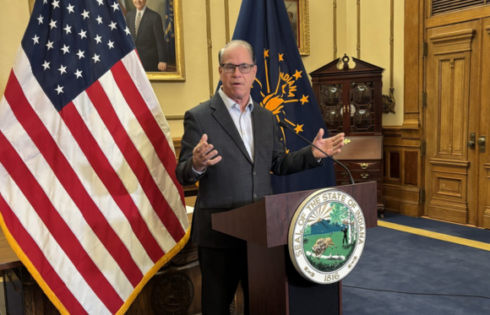
Professors say project can help future teachers become ‘equity-minded’ leaders
A required Elon University course for early childhood education majors had students complete social justice advocacy projects in an effort to raise the next line of “equity-minded” teachers, according to a study.
Professors Heidi Hollingsworth and Mary Knight-McKenna at the private North Carolina university published the study, “Deepening awareness of inequities: investigating an advocacy project in early childhood teacher education,” in a recent issue of the Journal of Early Childhood Teacher Education.
The study focused on one Elon course in particular, “Early Childhood Policy and Advocacy,” which Hollingsworth taught.
For a class project, students had to pick “an early childhood issue and advocate for change that promotes equity,” according to the study.
The professors wanted to see if the implementation of advocacy projects would inspire future teachers to “become advocates for equity” and “equity-minded leaders.”
Students who major or minor in early childhood education must complete the course to receive their degree, the study stated.
The project was required for the class, but participation in the study was not. There were 36 students who joined the study, most being upperclassmen who were white and female.
Topics of students’ advocacy projects included dyslexia, alcoholism, “gender typing,” and a lack of accommodations for children who are deaf or hard of hearing in schools.
Another advocacy project involved “LGBTQIA” curriculum in the K-12 school system. This student’s project concluded that students who identify as LGBTQIA face social disparity in the classroom, according to the study.
The student wrote in a self-report for the study that there is a “hostile environment present in schools” for LGBTQIA students because they appear to be excluded from others.
In their study of the advocacy projects, the professors wrote that students made progress in their efforts to “take action” about “injustice” within society; however, the future teachers only showed “beginning understandings of inequities.”
“A teaching force that (a) understands the layers and complexities of inequity, (b) is well equipped to advocate for children and their families, and (c) believes in the prospect of improving education and society would be a powerful means of enacting positive change,” the professors concluded.
The professors “urge[d]” other universities to adopt advocacy projects to encourage students to “take action” about “social inequities.”
“It is incumbent upon [early childhood teacher education] programs to provide teacher candidates with the knowledge and skills needed to become effective advocates who can analyze how policies help or hurt children and families and take action to support the greater good,” they wrote.
Hollingsworth declined to participate in an interview when The College Fix contacted her by phone this month. Knight-McKenna retired in the spring; she did not respond to emails to her university address, and her campus phone number was disconnected when The Fix tried calling.
The university featured their research in a recent news article, stating it “highlights the Dr. Jo Watts Williams School of Education’s dedication to preparing educators who are both classroom leaders and advocates for meaningful, lasting change in the field of education.”
Creating ‘little activists’
Two educational advocacy experts who spoke with The Fix about the study voiced their opposition to blending social justice advocacy with education.
David Randall, director of research for the National Association of Scholars, said social justice advocacy in early childhood education is detrimental and must be stopped.
“The explicit subordination of higher education to social justice advocacy has been growing in strength within academia since at least the 1960s, when the ‘service-learning’ pedagogy was invented,” Randall told The College Fix in a recent email.
Randall said “service-learning” is negatively impacting the school system because it has been used “to divert university resources to progressive political ends.”
He believes a federal law that funds service learning should be repealed.
Randall, who also serves as the executive director for Civics Alliance, said the organization drafted a potential solution: the Classroom Learning Act. The model act would stop schools and colleges from receiving funding if they include service learning in their curriculum.
Another policy center, the John Locke Foundation in North Carolina, also does not support social justice advocacy projects in the classroom.
Robert Luebke, the director for the foundation’s Center of Effective Education, said it is vital to analyze education’s place and definition in today’s society.
“What has happened now, in a lot of places … people in influential positions believe that schools are change agents, that they are instruments … of social justice,” Luebke said in a phone interview with The College Fix.
He said many schools today have been used to create “little activists” because of the educational system’s emphasis on social justice.
Meanwhile, students are struggling with proficiency in basic subjects like reading and math.
According to a recent article by The Hechinger Report, “70% of eighth graders scored below ‘proficient’” in reading on the 2022 National Assessment of Education Progress. Some high school and college instructors also report students are struggling to read and understand mathematics at their education levels.
Luebke said he thinks teachers need to have a “renewed emphasis on content … mastery” to help students succeed.
However, he also said schools cannot be responsible for a student’s entire educational success. He said parents should be a part of the solution by setting aside 15 to 20 minutes of time to read to their children at night.
“The other answer to this is culturally, I mean schools can’t do everything … you have to live in a culture, you have to live in a family … where you know, learning is valued,” Luebke said.
MORE: Mandatory DEI faculty statements most common for education, chemistry jobs: study
IMAGE: Michael_Jung/Shutterstock
Like The College Fix on Facebook / Follow us on Twitter






Please join the conversation about our stories on Facebook, Twitter, Instagram, Reddit, MeWe, Rumble, Gab, Minds and Gettr.